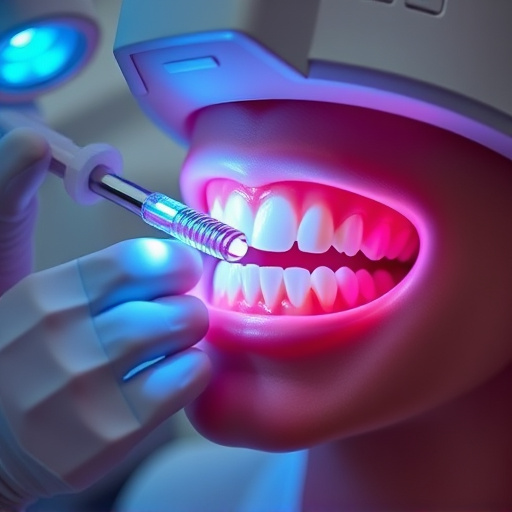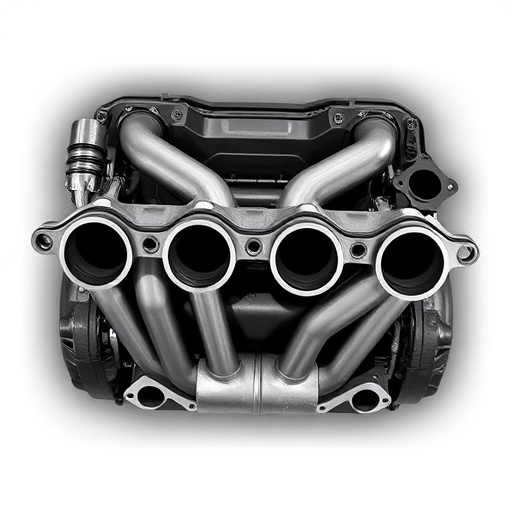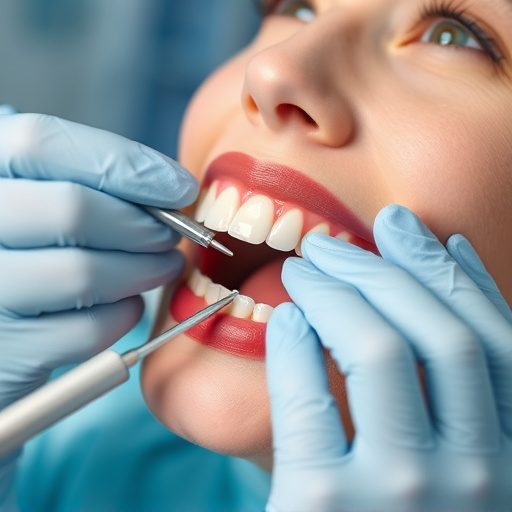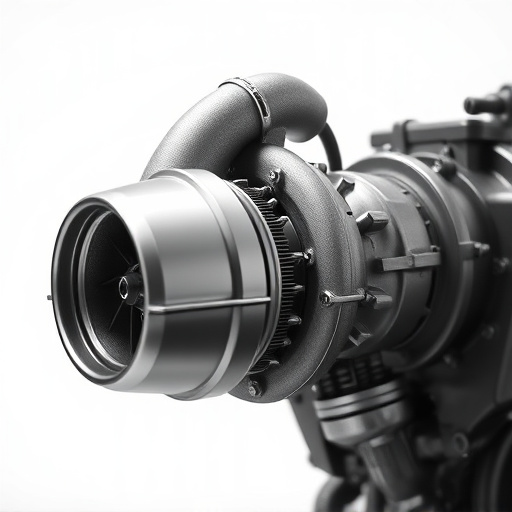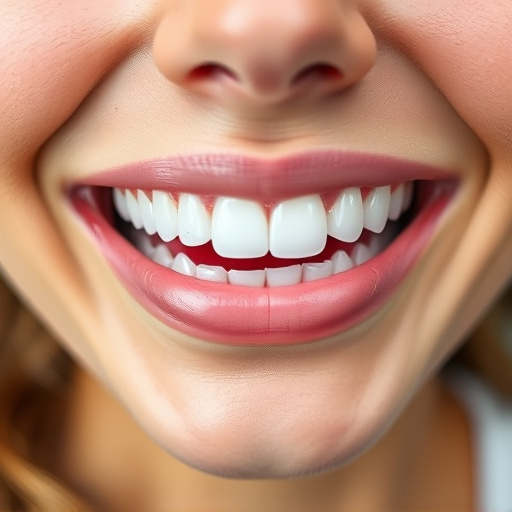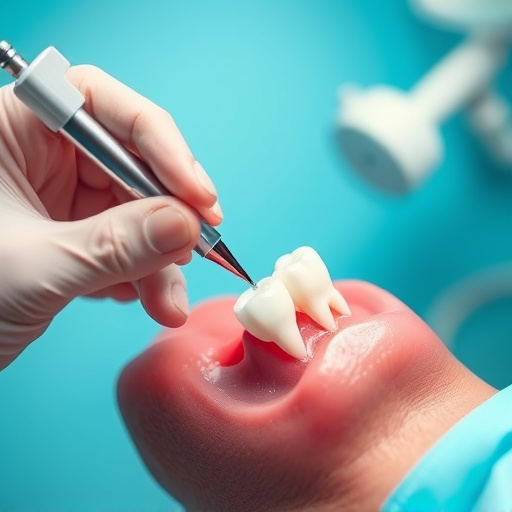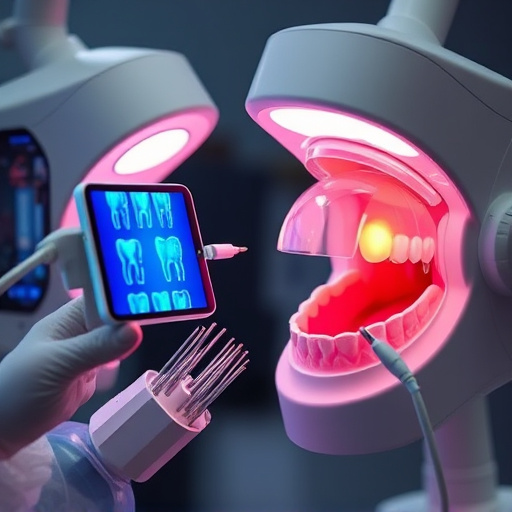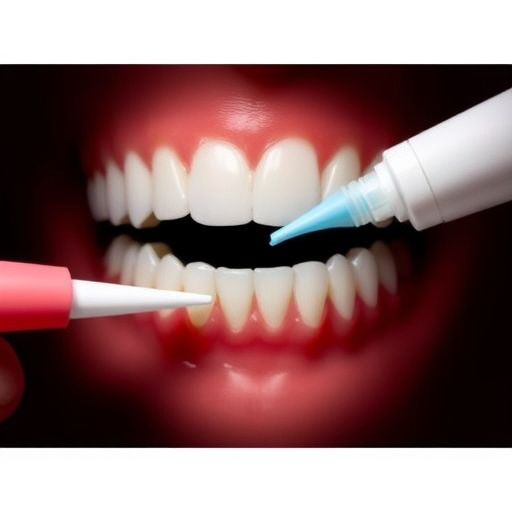TMJ disorder treatment focuses on relieving jaw tension caused by stress, affecting muscles, tendons, and bones. Options include dental interventions, non-dental approaches like therapy, massage, lifestyle adjustments, and holistic methods for long-term management, such as meditation, yoga, and regular dental care.
Stress-related jaw tension is a common symptom of TMJ disorder, leading to discomfort and potential dental issues. This article explores comprehensive treatment options tailored to alleviate stress-induced jaw tension. We delve into understanding the condition’s connection to stress, offering insights on non-invasive procedures known to provide relief. Additionally, we discuss lifestyle adjustments and therapy as long-term management strategies for TMJ disorder treatment, empowering individuals to reclaim their comfort and well-being.
- Understanding TMJ Disorder and Its Connection to Stress
- Non-Invasive Treatment Options for Jaw Tension Relief
- Lifestyle Changes and Therapy for Long-Term Management
Understanding TMJ Disorder and Its Connection to Stress
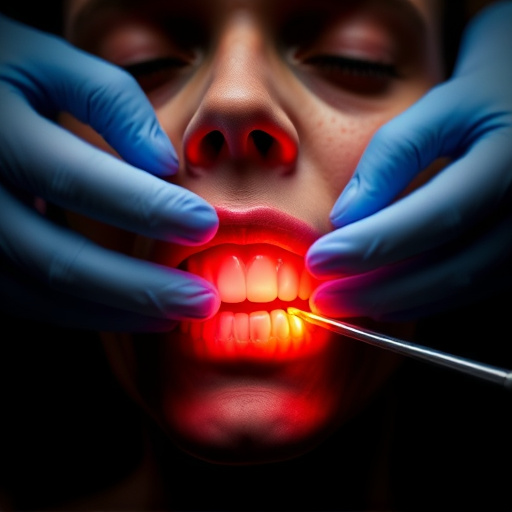
TMJ disorder treatment is often sought by individuals experiencing jaw tension and related symptoms stemming from stress. TMJ, or temporomandibular joint, refers to the complex system of muscles, tendons, and bones that facilitate jaw movement and chewing. When this joint becomes dysfunctional due to stress, it can lead to a range of issues such as jaw pain, headaches, earaches, and difficulty opening or closing the mouth. Stress-related TMJ disorder is not merely an inconvenience; it’s a significant health concern that impacts overall quality of life.
The connection between TMJ disorder and stress lies in the physical response our bodies have to mental tension. Chronic stress can cause muscles around the jaw to tighten, leading to misalignment and strain on the joint. Over time, this can result in inflammation, cartilage damage, and even bone changes within the TMJ. Fortunately, TMJ disorder treatment options exist to address these issues. This may include dental interventions like bite adjustments or orthotic devices worn during sleep, as well as non-dental approaches such as stress management techniques, physical therapy, and medication. For some, cosmetic dentistry or children’s dentistry procedures might also be considered as part of a comprehensive TMJ disorder treatment plan. Regular dental cleanings play a crucial role in preventing further complications.
Non-Invasive Treatment Options for Jaw Tension Relief

For those seeking relief from jaw tension caused by TMJ disorder, there are several non-invasive treatment options available that can significantly improve quality of life. One popular approach is thermal therapy, which involves applying heat or cold compresses to the affected area to reduce muscle spasms and inflammation. Simple yet effective techniques like massaging the temporomandibular joint (TMJ) and surrounding muscles can also provide instant relief.
Additionally, lifestyle adjustments play a crucial role in managing jaw tension. Patients are often advised to practice proper oral hygiene through regular teeth cleaning and flossing, ensuring no debris or irritants around the TMJ. Managing stress through activities like yoga or meditation is another valuable strategy recommended by many dental professionals, especially considering the strong connection between stress and TMJ disorder. Children’s dentistry practitioners also emphasize the importance of early detection and prevention in managing jaw tension, often incorporating these techniques into routine check-ups.
Lifestyle Changes and Therapy for Long-Term Management

Adopting a holistic approach is crucial for long-term management of TMJ disorder treatment. Beyond addressing acute symptoms through emergency dental care or targeted interventions, focusing on lifestyle changes can significantly reduce jaw tension related to stress. Regular practice of relaxation techniques such as deep breathing, meditation, and yoga can help lower overall stress levels, thereby easing the strain on the temporomandibular joint (TMJ). Additionally, maintaining a balanced diet and avoiding foods that exacerbate symptoms, coupled with regular teeth cleaning as part of comprehensive dental care, can contribute to sustained relief.
Engaging in consistent physical activity and ensuring adequate sleep quality are also vital components of this strategy. These lifestyle adjustments not only foster general well-being but also play a direct role in calming the body’s stress response, which is often at the root of TMJ disorder symptoms. Over time, such proactive measures can prevent recurring episodes and promote a more comfortable, functional jaw.
TMJ disorder treatment doesn’t have to be invasive. By understanding the connection between stress and jaw tension, individuals can explore a range of non-invasive options like physical therapy, massage, and lifestyle adjustments. These holistic approaches offer effective relief from jaw pain and clenching, promoting long-term management and improved quality of life for those suffering from stress-related TMJ disorder.
